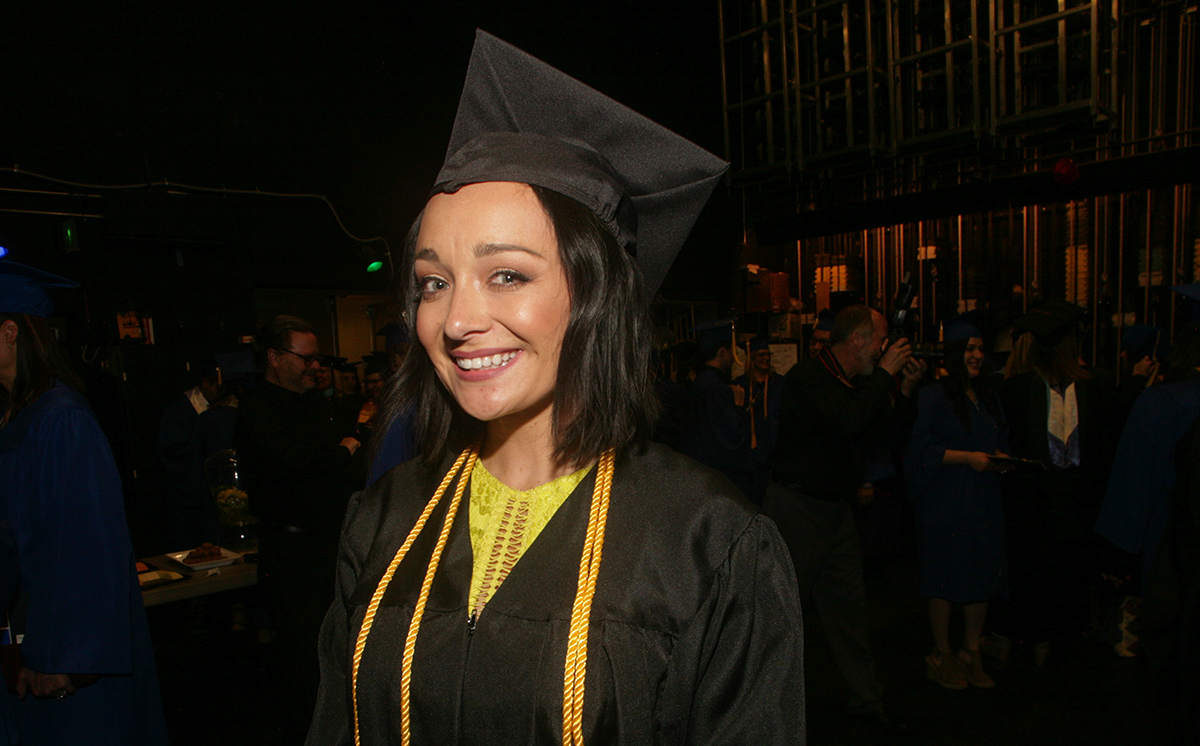By Carrie Click
EAGLE COUNTY, COLO. – Morgan Bethke never imagined she would be an elementary school teacher.
“It never crossed my mind,” said the 29-year-old Edwards resident. “Teaching found me.”
Bethke grew up in central California and studied business and marketing at Fresno State right out of high school. Before earning a degree she started working in the fashion industry in Los Angeles, but found the scene wasn’t for her. So when an opportunity came up to spend a winter in Colorado, she took it.
That was more than five years ago. Now she’s a member of the first class graduating from Colorado Mountain College’s teacher education program with a bachelor’s degree in education and a teaching certificate. And not only that – she’s already been offered and has accepted a teaching position

in Eagle County.
According to Barbara Johnson, director of CMC’s teacher education program, in 2010 the college assessed the needs of all school districts within its own six-county district. The college conducted surveys and content analysis, reviewed census data and consulted with a 12-member panel of K-12 and higher-ed educators. CMC then determined that the growth in Garfield and Eagle counties indicated a teacher education program would help to solve imminent teacher shortages.
This program grew out of that need, a “grow your own” approach so local students could be well educated to teach local children in area schools. And all of this comes at a fraction of the tuition charged at other higher-learning institutions in Colorado.
‘What I want to do’
When Bethke first arrived in the Vail Valley, she said she was enjoying the mountain lifestyle. She decided to stay for the summer and was working restaurant jobs when she heard about Colorado Mountain College Vail Valley and thought she’d like to finish her degree.
“I was a few credits shy of an associate degree,” she said.
Business and marketing began giving way to education, however, especially when she learned that CMC’s new teacher education program was starting. Since she had always been interested in kids and psychology, she was excited to learn that she could earn a bachelor’s degree and teaching credentials here. She registered for classes.
“I just fell in love with the field of education,” she said. “That first semester, meeting [teacher education faculty] Liz Qualman and being in the classroom, I knew. This is what I want to do.”
Nationally, student teachers spend an average of 500 hours of interactive classroom time to be eligible for licensure. In Colorado, that figure jumps to 800 hours. CMC’s teacher education program requires a full 1,200 hours before a student teacher graduates. From the first semester, students are gaining experience and skills directly with children in the classroom.
That’s not all. Course work, Bethke said, is “very rigorous.” She said CMC’s small-school atmosphere helps students to build relationships among their peers as well as among college and school district staff and faculty, to get the one-on-one attention needed to excel.
Right place, right time
The teacher education program pairs student teachers with mentors. In Bethke’s case, her mentor was Joanna Oleszczak, cognitive needs teacher at June Creek Elementary in Edwards. Bethke’s work as a paraprofessional under Oleszczak confirmed her focus and passion for special needs education. Recently, Bethke applied for and just accepted a new, pioneering position in behavioral and affective needs at Homestake Peak, a pre-K through 8th-grade school in Eagle-Vail.
“It was the right place, right time,” Bethke said. “It combines my interest in school psychology and special needs.”
The majority of the other nine inaugural graduates from the college’s teacher education program – five more from CMC Vail Valley at Edwards and four from CMC Glenwood Springs – have already found teaching positions in the area.
As these students graduate, CMC’s teacher education program is continuing to grow. Currently, over 80 students are enrolled in Glenwood Springs and Edwards. Twelve are on track to graduate in spring 2019, and the numbers are projected to increase.
